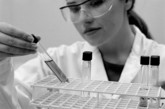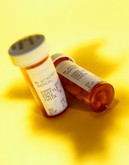Biosimilars
TNF copy biological approved in China
China-based Simcere Pharmaceutical Group (Simcere) announced on 9 May 2011 that Shanghai Celgen Bio-Pharmaceutical (Shanghai Celgen) has received approval for Qiangke – a copy biological version of etanercept – by the Chinese authorities.
Comparability for biosimilar development
How does ‘comparability’ apply to biosimilar drug development? This was the question discussed by Dr Mark McCamish and Dr Gillian Woollett [1].
Biosimilars user fees as high as brand-name fees
On 9 May 2011, the FDA proposed a user fee programme that would see drugmakers seeking approval to market biosimilars in the US initially paying fees similar to those required of originator biological drug developers.
Changes in the quality attributes of darbepoetin alfa
Quality changes over a period of time were found in commercially available darbepoetin alfa (Aranesp) by Sandoz researchers. Since the drug remained on the market with an unchanged label, this would indicate that the changes were accepted by the health authorities [1].
Brazil to manufacture follow-on adalimumab
The Brazilian Ministry of Health (Ministério da Saúde) announced on 5 April 2011 that it would be entering into an agreement with PharmaPraxis to manufacture a biosimilar, or follow-on version, of Abbott’s monoclonal antibody Humira (adalimumab).
Acceptable changes in quality for glycosylated biologicals
Research carried out by Sandoz into three glycosylated protein biotechnology drugs currently on the market showed quality changes over the period studied. Since all three drugs remained on the market with unchanged labels, this would indicate that the changes were accepted by the health authorities [1].
Opportunities for biosimilar development
Rising drug costs and limited healthcare budgets across the world, coupled with the fact that many biotechnology drugs will soon lose their patent protection, means that there is a huge opportunity for biosimilar manufacturers.
Teva grabs biopharmaceutical company Cephalon
On 2 May 2011, Teva and Cephalon announced that they had unanimously approved a definitive agreement under which Teva will acquire all outstanding shares of Cephalon for US$81.50 per share in cash, or a total enterprise value of approximately US$6.8 billion.
Biobetters rather than biosimilars
‘Biobetters’, rather than biosimilars, are the next big opportunity for biopharm and contract research organisations (CROs) hoping to profit from patent expirations on biologicals, say experts.
Worldwide biosimilar development
The limited access to high-quality biologicals due to the cost of treatment constitutes an unmet medical need in the US and other regions of the world [1].













